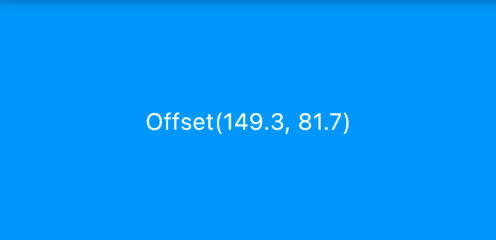In C language, enums (enumerations) are an important user-defined data type, primarily used to represent a set of related integer constants. Although enums in C may seem simple, they play a significant role in code readability, maintainability, and clarity of program logic. This blog post will delve into the enum type in C, including its definition, usage, advantages, and some common pitfalls.
1. Definition and Basic Usage of Enums
What is an Enum?
An enum is a type that allows the programmer to define meaningful names for a group of integer constants. It can make the code more readable and maintainable, as using named constants instead of raw numeric constants makes the intent of the code clearer.
1. Basic Definition of Enums
In C, enums are defined using the enum keyword. The syntax is as follows:
enum EnumName {
EnumConstant1,
EnumConstant2,
...
};Example:
enum Weekday {
SUNDAY,
MONDAY,
TUESDAY,
WEDNESDAY,
THURSDAY,
FRIDAY,
SATURDAY
};In this example, Weekday is an enum type that contains all seven days of the week as enum constants.
2. Values of Enum Constants
Enums are stored as integers in memory. By default, the value of the first element in the enum list is 0, and the subsequent elements increment by 1. You can also assign specific integer values to enum elements:
enum Weekday {
SUNDAY = 1,
MONDAY = 2,
TUESDAY = 3,
WEDNESDAY = 4,
THURSDAY = 5,
FRIDAY = 6,
SATURDAY = 7
};3. Declaring and Using Enum Variables
Once the enum type is defined, you can declare variables of that enum type and use them to represent specific integer values:
enum Weekday today;
today = WEDNESDAY;
if (today == WEDNESDAY) {
printf("Today is Wednesday.\n");
}2. Advantages of Enums
1. Enhanced Readability
Using enums can make the code more self-explanatory. Compared to directly using numeric constants, enum constants can clearly express the meaning of a constant. For example, WEDNESDAY is easier to understand than 3, as it directly represents Wednesday.
2. Code Maintainability
Enum constants are defined together, making it easier to manage them centrally within the program. If you need to modify the value of certain constants, you only need to change it in the enum definition, instead of searching and replacing these constants throughout the entire code.
3. Type Safety
Although enums in C are not strictly type-safe, they offer some level of type checking, helping to prevent assigning unrelated integer values to enum variables.
3. Comparison Between Enums and Macros
1. Enums vs Macros
Both enums and macros (using #define) can be used to define constants, but enums provide type checking, whereas macros are simply textual replacements with no type information.
#define MONDAY 0 #define TUESDAY 1 // ...
Using macros is less safe than enums, as macros have no type checking, which can lead to type errors.
4. Advanced Usage of Enums
1. Using enum as Function Parameters
Passing enum types as function parameters can significantly improve the readability and maintainability of code. Using enum types for function parameters makes the function’s intent clearer and prevents invalid values from being passed.
#define _CRT_SECURE_NO_WARNINGS
#include <stdio.h>
enum Weekday {
SUNDAY,
MONDAY,
TUESDAY,
WEDNESDAY,
THURSDAY,
FRIDAY,
SATURDAY
};
void printDay(enum Weekday day) {
switch (day) {
case SUNDAY: printf("Sunday\n"); break;
case MONDAY: printf("Monday\n"); break;
case TUESDAY: printf("Tuesday\n"); break;
case WEDNESDAY: printf("Wednesday\n"); break;
case THURSDAY: printf("Thursday\n"); break;
case FRIDAY: printf("Friday\n"); break;
case SATURDAY: printf("Saturday\n"); break;
default: printf("Invalid day\n"); break;
}
}
int main() {
enum Weekday today = WEDNESDAY;
printDay(today);
return 0;
}In this example, enum Weekday defines a set of constants for the days of the week. The printDay function takes an enum Weekday type parameter and outputs the corresponding weekday based on its value. Using enums as parameters instead of integers makes function calls more semantic and prevents passing invalid integer values.
2. Defining Aliases for Enums
Using typedef to define aliases for enums can make the code more concise and easier to understand. This approach avoids repeating the enum keyword each time and improves the readability of the code.
#define _CRT_SECURE_NO_WARNINGS
#include <stdio.h>
typedef enum {
RED,
GREEN,
BLUE
} Color;
void printColor(Color color) {
switch (color) {
case RED: printf("Red\n"); break;
case GREEN: printf("Green\n"); break;
case BLUE: printf("Blue\n"); break;
default: printf("Unknown color\n"); break;
}
}
int main() {
Color myColor = GREEN;
printColor(myColor);
return 0;
}Here, the typedef defines an alias called Color for the enum type. In the function printColor and variable myColor, you can directly use Color instead of enum Color, making the code cleaner.
3. Combining Bitfields and Enums
Bitfields are used to store integer values in a more compact form within a structure, which is useful when memory conservation is needed. Combining enums with bitfields can effectively store multiple flag bits.
#define _CRT_SECURE_NO_WARNINGS
#include <stdio.h>
typedef enum {
FLAG_A = 1 << 0, // 0b0001
FLAG_B = 1 << 1, // 0b0010
FLAG_C = 1 << 2 // 0b0100
} Flags;
struct MyStruct {
unsigned int flags : 3; // 3 bits
};
int main() {
struct MyStruct myStruct;
myStruct.flags = FLAG_A | FLAG_C; // Set FLAG_A and FLAG_C
if (myStruct.flags & FLAG_A) {
printf("FLAG_A is set.\n");
}
if (myStruct.flags & FLAG_B) {
printf("FLAG_B is set.\n");
}
if (myStruct.flags & FLAG_C) {
printf("FLAG_C is set.\n");
}
return 0;
}In this example, the Flags enum defines flag values, and the MyStruct structure uses a bitfield to store these flags. The line myStruct.flags = FLAG_A | FLAG_C; uses the bitwise OR operator (|) to combine FLAG_A and FLAG_C. Bitwise operations like | and & are used to set and check specific flags.
5. Pitfalls and Considerations
1. Range of Enum Values
Enums in C are actually stored as integers, but the standard does not specify the exact integer range. Therefore, different compilers may use different integer sizes to represent enums, meaning enums could occupy different numbers of bytes on different platforms.
2. Confusion Between Enums and Integers
While enums can enhance readability and convenience, since enums are essentially integers in C, they can cause confusion when performing inappropriate operations or assignments with other integer types. Avoid performing operations between enums and other integers unless they are explicitly intended.
3. Default Values for Enums
If values are not explicitly specified in an enum definition, the constants will start from 0 and increment by 1. This can lead to unexpected values, and errors may occur if the actual values of enums are not well understood.
4. Compatibility Between Enum Types and Ranges
Different compilers may implement enums differently. For example, some compilers might implement enums as int, while others might use smaller integer types. Be sure to understand the implementation details of your compiler to avoid compatibility issues when developing across platforms.
Conclusion
While enums in C are simple, they provide a structured and readable way to define and manage constants. Proper use of enums can make your code more readable and maintainable. However, when using enums, it's important to be aware of potential pitfalls and platform-dependent issues. Understanding how enums work and their advantages and disadvantages will help you write clearer and more efficient C code.






